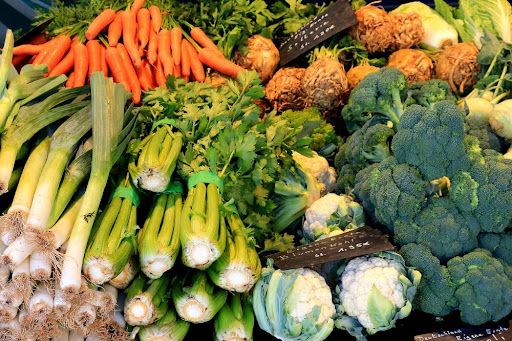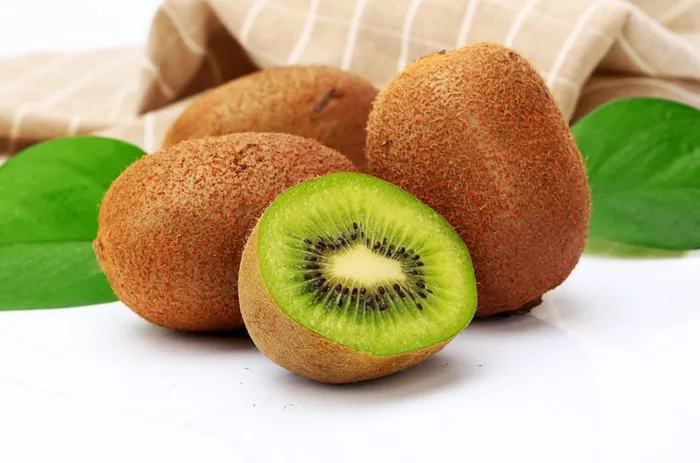In a world where health-conscious individuals are constantly seeking ways to enhance their protein intake, the role of vegetables in providing this essential nutrient should not be underestimated. While meat and dairy products are often considered primary sources of protein, vegetables also play a crucial role in ensuring a balanced and nutritious diet. This article aims to explore the realm of high-protein vegetables, shedding light on their nutritional benefits, culinary versatility, and the positive impact they can have on overall well-being.
Understanding Protein and its Importance
Before delving into the world of high-protein vegetables, it’s essential to have a basic understanding of protein and its significance in the human diet. Proteins are macronutrients composed of amino acids, often referred to as the building blocks of life. These amino acids are crucial for various physiological functions, including the repair and growth of tissues, immune system support, and the production of enzymes and hormones.
The Recommended Dietary Allowance (RDA) for protein varies based on factors such as age, sex, and activity level. While animal products like meat, poultry, fish, and dairy are well-known protein sources, incorporating high-protein vegetables into one’s diet offers a plant-based alternative that can contribute significantly to meeting daily protein requirements.
The Power of High-Protein Vegetables
1. Edamame: The Protein-Packed Soybean
Edamame, or young soybeans, is a nutritional powerhouse that has gained popularity for its rich protein content. With approximately 18.5 grams of protein per cup, edamame surpasses many other vegetables in terms of protein density. Beyond its protein content, edamame is a versatile ingredient that can be incorporated into various dishes, from salads to stir-fries.
2. Spinach: Popeye’s Secret Weapon
While spinach may not boast as much protein as some other vegetables, it still deserves a spot on the list of high-protein options. With about 5 grams of protein per cooked cup, spinach provides a nutrient-dense addition to salads, smoothies, and cooked dishes. Moreover, it is rich in iron, vitamins, and antioxidants, making it a valuable component of a balanced diet.
3. Broccoli: More Than Just a Side Dish
Often regarded as a quintessential side dish, broccoli surprises many with its protein content. With around 3 grams of protein per cup, broccoli is a respectable source of this essential nutrient. It also offers a host of other health benefits, including fiber, vitamins C and K, and antioxidants. Discover the various ways to incorporate broccoli into meals to maximize its nutritional impact.
4.Brussels Sprouts: Miniature Protein Powerhouses
Brussels sprouts, resembling mini cabbages, are not only delicious but also pack a protein punch. With approximately 3 grams of protein per cup, these cruciferous vegetables contribute to a well-rounded diet. Learn creative cooking methods to enhance the flavor of Brussels sprouts while preserving their nutritional value.
5. Lentils: The Plant-Based Protein King
As legumes, lentils are celebrated for their impressive protein content. With around 18 grams of protein per cooked cup, lentils are a staple in many vegetarian and vegan diets. Explore the different types of lentils, their culinary uses, and the health benefits they bring to the table.
6. Chickpeas: Versatile and Protein-Rich
Chickpeas, also known as garbanzo beans, are a versatile legume that adds a protein boost to various dishes. With approximately 15 grams of protein per cooked cup, chickpeas are a go-to option for plant-based protein. Dive into the world of hummus, chickpea curries, and roasted chickpea snacks to elevate your protein intake.
7. Quinoa: The Complete Protein Grain
Although technically a seed, quinoa is often treated as a grain in culinary contexts. What sets quinoa apart is its status as a complete protein, containing all nine essential amino acids. With around 8 grams of protein per cooked cup, quinoa offers a nutritious alternative to traditional grains. Explore diverse quinoa recipes, from salads to main dishes, to harness its protein-rich benefits.
8. Cauliflower: The Unassuming Protein Source
Cauliflower, known for its versatility, is a surprising source of protein. With approximately 2 grams of protein per cup, cauliflower may not be the highest on the list, but its other nutritional benefits make it a valuable addition to meals. Discover innovative ways to incorporate cauliflower into your diet, from cauliflower rice to buffalo cauliflower bites.
9. Kale: The Leafy Green Protein Boost
Kale, a nutrient-dense leafy green, is celebrated for its high protein content and myriad health benefits. With around 3 grams of protein per cup, kale is a valuable addition to salads, smoothies, and cooked dishes. Uncover the nutritional profile of kale and explore delicious recipes that showcase its protein-packed potential.
10. Peas: Small But Mighty Proteins
Peas, whether fresh or frozen, are a humble yet potent source of protein. With approximately 8 grams of protein per cooked cup, peas contribute to the overall protein intake in a diet. Explore the different varieties of peas and learn how to incorporate them into diverse dishes, from soups to pasta.
Balancing Protein Intake with High-Protein Vegetables
Achieving a balanced and nutritious diet involves incorporating a variety of foods that provide essential nutrients, including protein. While high-protein vegetables offer valuable plant-based alternatives, it’s crucial to consider overall dietary needs and preferences. Combining a mix of protein sources, both plant-based and animal-derived, ensures a comprehensive intake of essential amino acids and other nutrients necessary for optimal health.
[inline_related_posts title=”You Might Be Interested In” title_align=”left” style=”list” number=”6″ align=”none” ids=”5499,5477,5451″ by=”categories” orderby=”rand” order=”DESC” hide_thumb=”no” thumb_right=”no” views=”no” date=”yes” grid_columns=”2″ post_type=”” tax=””]

































